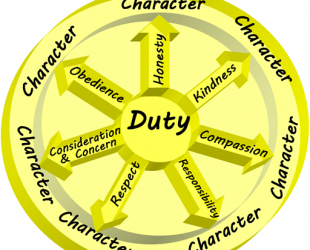Losing a loved one is never easy, at any age. It is a hard hitting reminder that nothing is forever and that we need to treasure every minute we spend with our families.
As an adolescent, your child could already be undergoing a lot of physical, physiological and social changes that he or she is already confused about. Teens do not like the idea of not being in control of their emotions, and being faced with such a hard-hitting truth can sometimes frighten them.
Keeping in mind the familial set-up, it is possible that most of them may be experiencing death of a loved one for the first time. This makes it twice as hard for them to accept these changes.
We recently went through the loss of my father-in-law, and we are still grieving as I write this. I have been concerned in sharing this after I noticed how hard my thirteen year old was affected. It made me apprehensive, and as always I took to talking to all the super moms I knew about how to help her get through it.
Here, I am sharing my lessons and experience:
Teenagers Understand the Concept of Death
Teenagers are mature enough to understand the permanency of death. However, they may be unwilling to accept the occurrence to someone that they love. Teenagers may either show a wide range of emotions like anger, or aggression, or may completely withdraw, and become extremely quiet.
Respect their grief and give them time to heal, while making sure they are aware that you are available to talk. If you see disturbing signs of rage, acting out or falling grades, it is advisable to talk to a counselor. Most schools these days have an in-house or a visiting counselor who talks to the children. Have a confidential chat with the counselor and brief him or her about the child’s situation and ask them to help the child deal with it.
Talk To Them about Your Grief
If the person who passed away is a family member, they are aware that you may be coping with grief yourself, and hence may not want to discuss their pain with you. As parents, it becomes our added responsibility to understand they are not strong enough, and take steps to be there.
You can make them open up by asking for their help. Instead of telling them to talk to you, ask if you can talk to them. They will rise to the occasion. This can create a vent for them without seeming helpless.






